-

Does Curriculum Fail Indigenous Political Aspirations? Sovereignty and Australian History and Social Studies Curriculum
by Mati Keynes, Beth Marsden, and Archie Thomas
Through analysis of curricular materials (syllabus documents and supplementary readers) from the late-nineteenth century to the present, this article explores the role of school curriculum in shaping understandings of Indigenous political aspirations in the Australian context. It juxtaposes curricular materials with significant occasions of Indigenous political activism in Australia since the late-nineteenth century: the Coranderrk campaign of the 1870-80s, the Wave Hill Walk Off in 1966, the establishment of the Aboriginal Tent Embassy in 1972, and the Bicentenary protests of 1988. From this analysis, five narrative sub-themes were developed—Invisibility, Benevolence, Obfuscation, Innocence, and Acknowledgement—which captured the ways that Indigenous sovereignty, nationhood, and political legitimacy had been represented. In drawing out some continuities and changes to curricular representations of First Nations’ and settler sovereignty, nationhood, and political legitimacy over a one hundred year period, this article highlights the uneven ways that curriculum has, and continues to, represent political possibilities on the Australian continent. This article offers insights for Nordic contexts where there are also contests about legacies of colonialism in the public sphere, including in education.
-

Beyond presentism: Memory studies, deep history and the challenges of transmission
by Rosanne Kennedy and Ben Silverstein
We take up the challenge to extend the ‘archive of mnemonic practices’ beyond recent histories of violence by facilitating a dialogue between scholarship on deep history and the fourth wave of memory studies, both emerging under the sign of the Anthropocene. In so doing, we engage with the problem of transmission as it has emerged in both fields. Works in cultural memory studies provide us with compelling ways of thinking through mediated practices of transmission, but they are limited by their focus on the recent past and on encultured technologies of memory that primarily reflect the European origins of the field. Studies of deep history, which engage transmission among Indigenous communities, by contrast, tend to rely on an account of transmission as precise replication, oftentimes over hundreds of generations. To reconsider and theorize mediated practices of transmission, we draw on the concept of the deep present as formulated within ethnomusicology. This term describes a present in which Aboriginal culture-work and performance both transmits memory of the deep past and evokes that deep past itself, activating it today. We consider two public installations as examples of remembrance of the deep past in urban Warrane/Sydney – bara by Judy Watson and Virtual Warrane by Brett Leavy – each of which is of Country in a way that connects memory over time and activates a deep present. We argue that these instances of memory in the deep present might offer ways of reconsidering the possibilities of a decolonizing future.
-
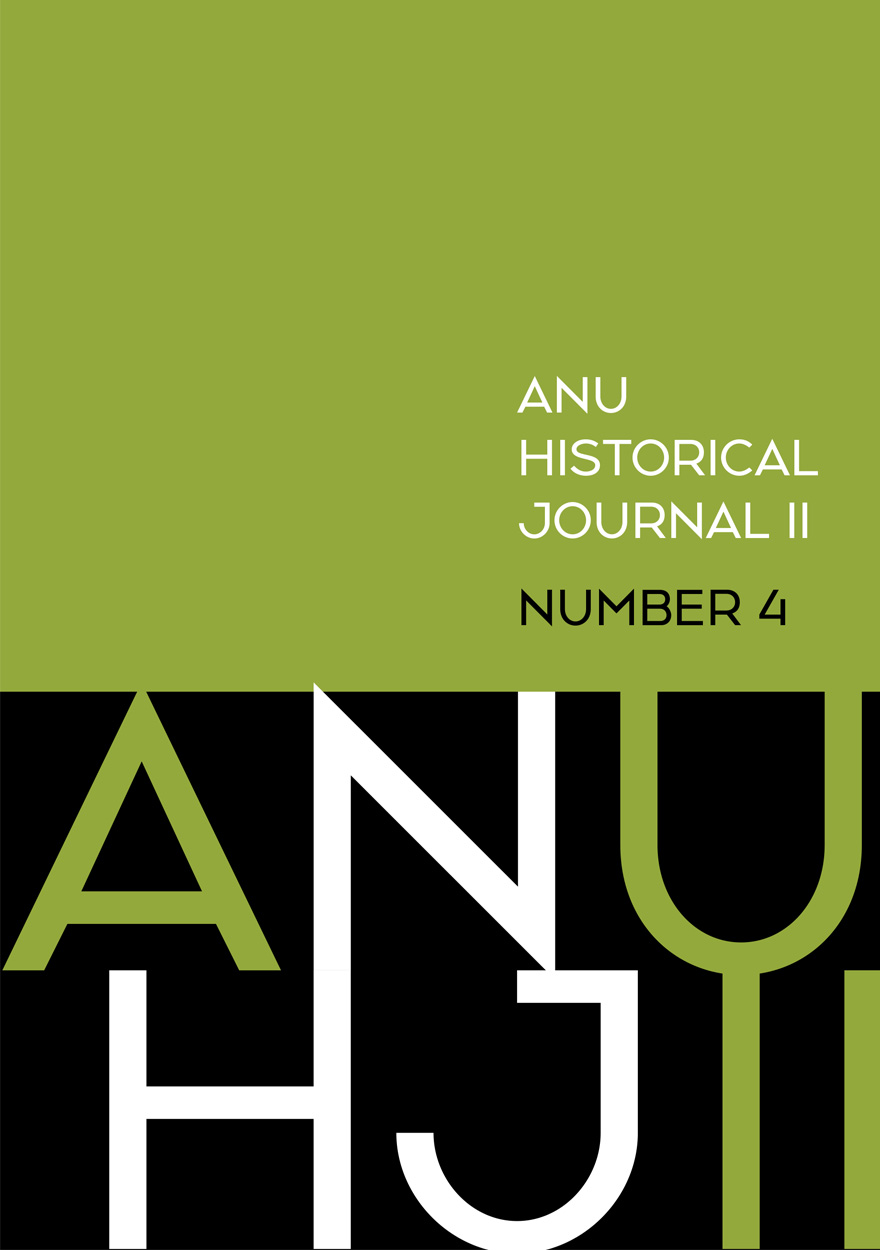
Marking Country: Mapping Deep Histories
by Mike Jones, Ann McGrath, Ben Silverstein and Amy Way in conversation with Ruby Ekkel
In the fourth issue of the ANU Historical Journal II, broad and urgent historical questions about memorialisation, environmental change, and violence are elucidated by detailed and thoughtfully contextualised studies of local places and communities in Queensland, New South Wales and Victoria. The six peer-reviewed articles span topics including frontier sexual violence, the categorisations of child patients in mental hospitals, the politics of war memorialisation, the long history of flooding in Queensland, and changing practices in community cemeteries. Complementing these articles are five book reviews which cast a critical eye on a wide range of new work, encompassing Australian, global, military, political, colonial, and disciplinary history. This issue also features the inaugural Robin-Griffiths Lecture in Environmental History, reflecting on Libby Robin and Tom Griffiths’ path-breaking work and changing sensibilities around national parks, as well as a conversation-style review of ‘Marking Country: Mapping Deep History’, presented by the Research Centre for Deep History. Together these pieces speak to the contributions of the research centres in the School of History, and to the rich range of ways in which history can be meaningfully created and communicated.
-
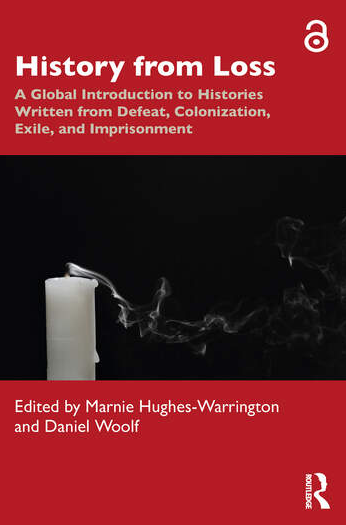
Jakelin Troy (1960–)
by Ann McGrath
Colonialism and imperialism led to profound losses in many parts of the world. The loss of Indigenous languages signals deeper cultural impacts, which the United Nations have recognized in declaring the International Decade of Indigenous Languages 2022–2032. This chapter delves into the significance of Jakelin Troy’s The Sydney Language ([1993] 2019), and into the historical context in which its vocabularies were originally gathered. The necessity of cross-cultural communication in the early contact period required translation, resulting in the rich and informative vocabularies that Troy has carefully researched and compiled. By introducing readers to a sampling of the individual words, McGrath’s chapter reveals fascinating insights into the everyday lives of these Indigenous peoples in the late eighteenth century. This includes an example of cultural exchange around the theme of crime and punishment between a British Lieutenant and a local Indigenous woman. Although Troy’s book showcases a language that was almost lost, McGrath challenges the notion that it is an extinct language, pointing out how Troy’s research facilitated linguistic revival. Her book not only made this language accessible; it leaves profound cultural and artistic legacies. It has enabled Australian Indigenous custodians to reconnect with their mother tongue; it has also informed and inspired actors, playwrights, novelists, and historians from many backgrounds.
McGrath, Ann. 2023. “Jakelin Troy (1960–).” In History from Loss: A Global Introduction to Histories Written from Defeat, Colonization, Exile and Imprisonment, edited by Marnie Hughes-Warrington and Daniel R. Woolf, 227–34. New York: Routledge.
-

Everywhen: Australia and the language of deep history
Edited by Ann McGrath, Laura Rademaker, Jakelin Troy
Everywhen asks how knowledge systems of Aboriginal people can broaden our understanding of the past and of history. Indigenous ways of knowing, narrating, and re-enacting the past in the present blur the distinctions of time, making all history now, with questions of time and language at the heart of Indigenous sovereignty.
Edited by Ann McGrath, Laura Rademaker, and Jakelin Troy, this collection draws attention to every when showing us that history is not as straightforward as some might think.
-
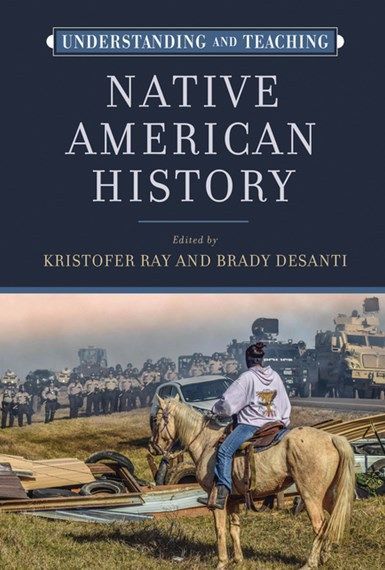
Understanding and Teaching Native American History
by Kristofer Ray and Brady Desanti
Director of the Research Centre for Deep History, Ann McGrath has contributed a chapter that focuses on lessons learned from teaching Indigenous history in Australia. Understanding and Teaching Native American History is a timely and urgently needed remedy to a long-standing gap in history instruction. While the past three decades have seen burgeoning scholarship in Indigenous studies, comparatively little of that has trickled into classrooms. This volume is designed to help teachers effectively integrate Indigenous history and culture into their lessons, providing richly researched content and resources across the chronological and geographical landscape of what is now known as North America.
-
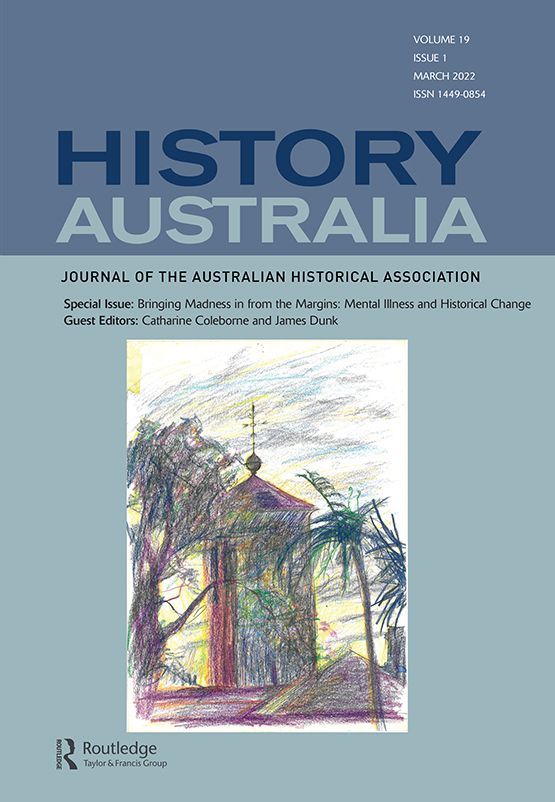
Displacing history, shifting paradigms: erasing Aboriginal antiquity from Australian anthropology
by Amy Way
This article traces the formalisation of anthropology in Australia from 1880 to 1920, during which time the ‘discipline’ shifted from a framework of developmental evolution to one of structural functionalism. It argues that this paradigm shift necessitated an elimination of anthropology’s once-foundational logic of Aboriginal antiquity: severed, first, from a paired notion of human primitivity, then removed altogether.
-
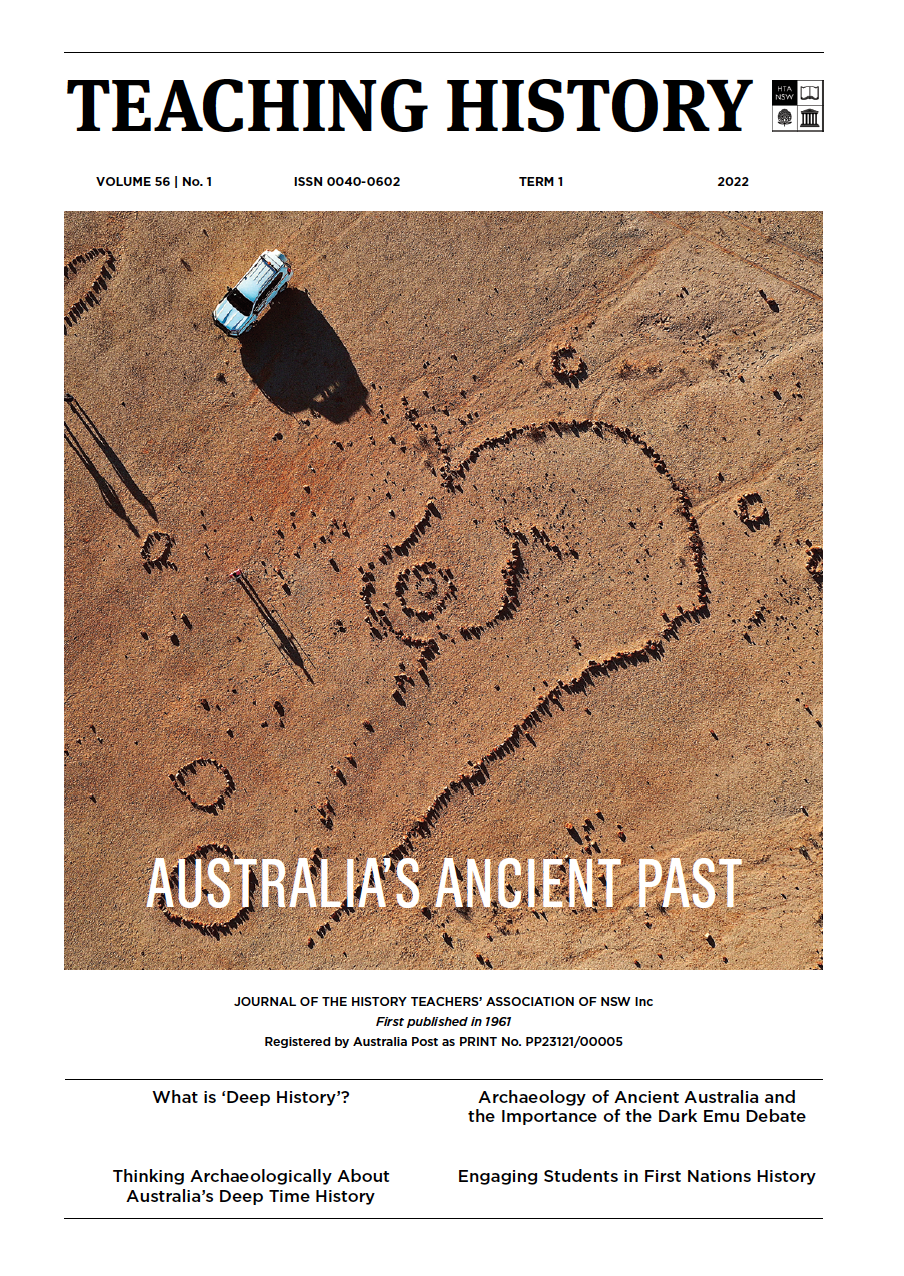
What is ‘Deep History’?
by Ann McGrath
This article was published in Volume 56 Issue 1 of the Teaching History journal. ‘Deep history aims to address the long time span of human history that extends beyond the modern, the pre-modern, the medieval and the ancient – or at least that which is usually defined as such. This makes deep history especially important for any study of Australian history; a story that cannot be fully told without expanding our thinking about history’s periodisation. This new ‘historical turn
-
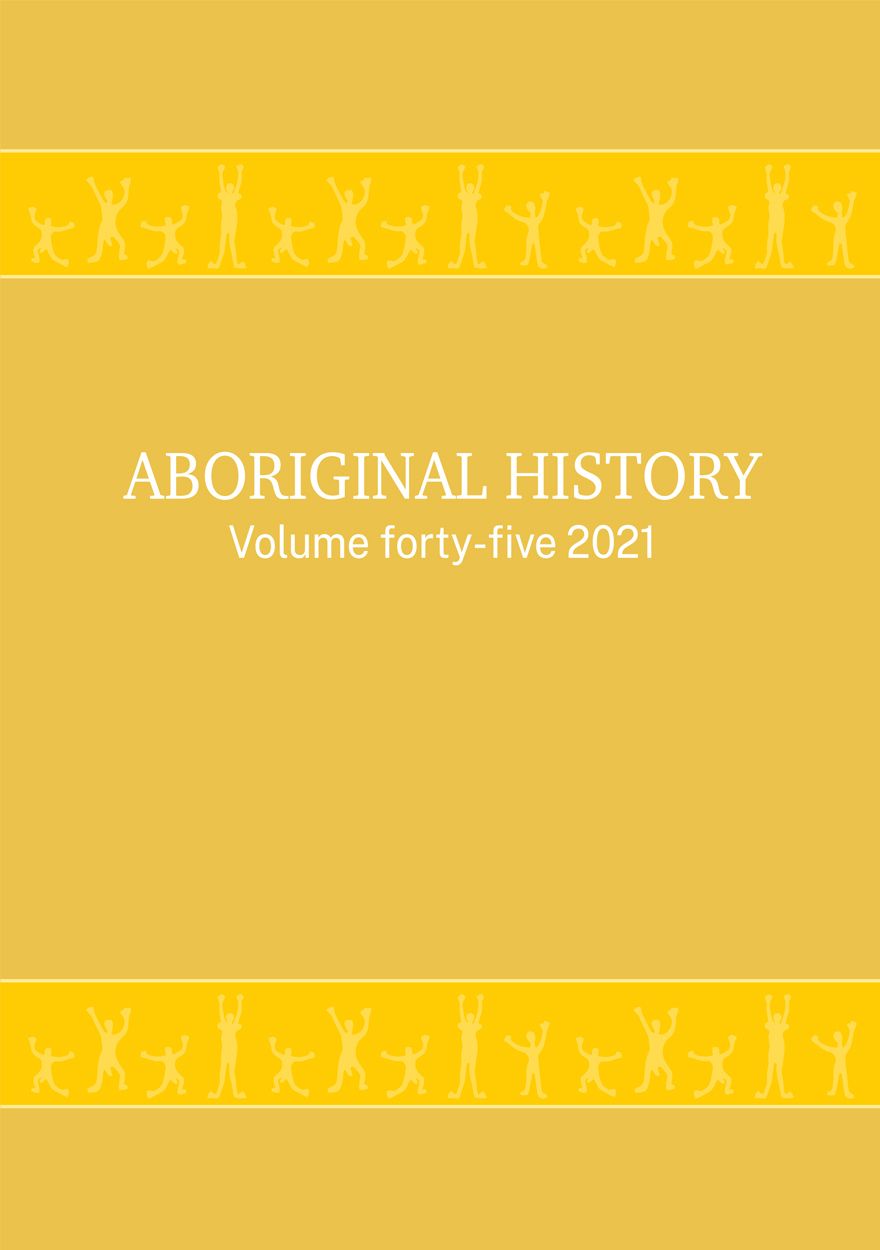
Aboriginal History Journal: Volume 45
Edited by Crystal McKinnon, Ben Silverstein
This volume begins with Michael Aird, Joanna Sassoon and David Trigger’s meticulous research tracing the well-known but sometimes confused identity of Jackey Jackey of the Lower Logan River in south-east Queensland. Emma Cupitt describes the multivocality and intertextuality of Radio Redfern’s coverage of Aboriginal protests in Sydney as the 1988 Australian Bicentenary celebrations took place elsewhere in the city. Similarly approaching sources for their multiplicity, Matt Poll and Amanda Harris provide a reading of the ambassadorial work performed by assemblages of Yolngu bark paintings in diverse exhibition spaces after the Second World War.
-
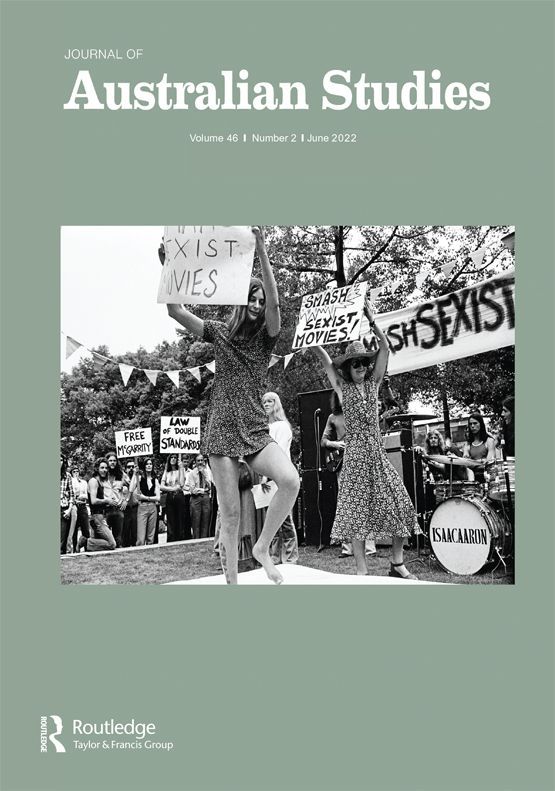
Alison Holland, Breaking the Silence: Aboriginal Defenders and the Settler State, 1905–1939
by Ben Silverstein
In this book review, Ben Siverstein writes on ‘Breaking the Silence: Aboriginal Defenders and the Settler State, 1905–1939’ by Alison Holland and published by Melbourne University Press. In 1905, Alison Holland writes, the publication of the Routh report on the treatment of Aboriginal people in Western Australia was “the spark that ignited the humanitarian cause”, generating decades of furious contestation around what was often called “the native problem”

